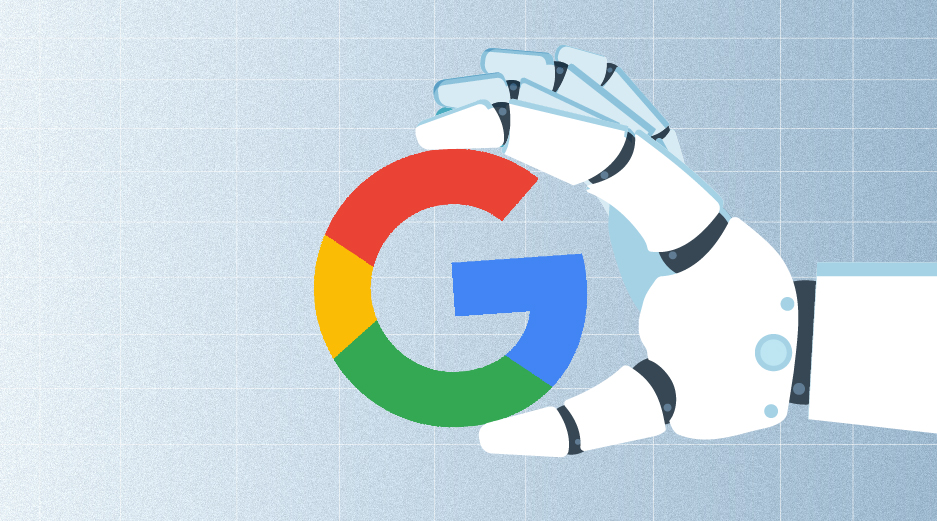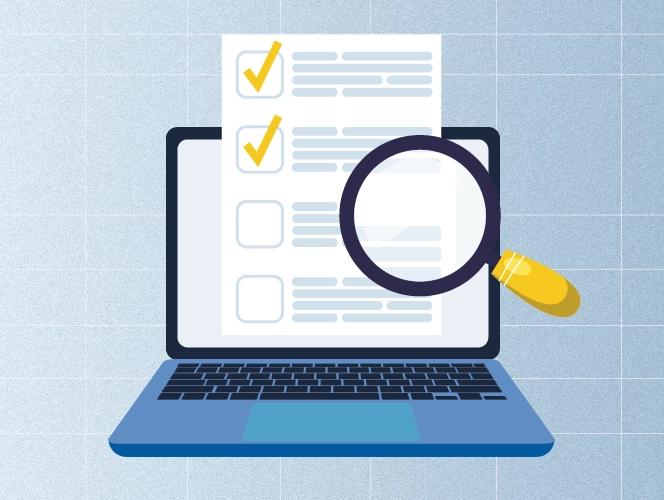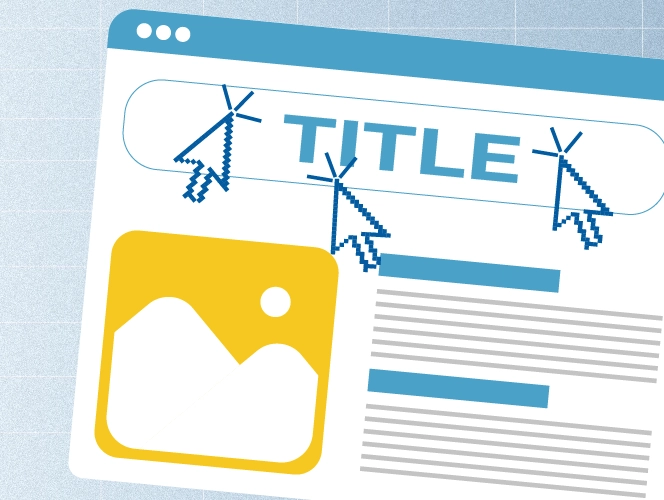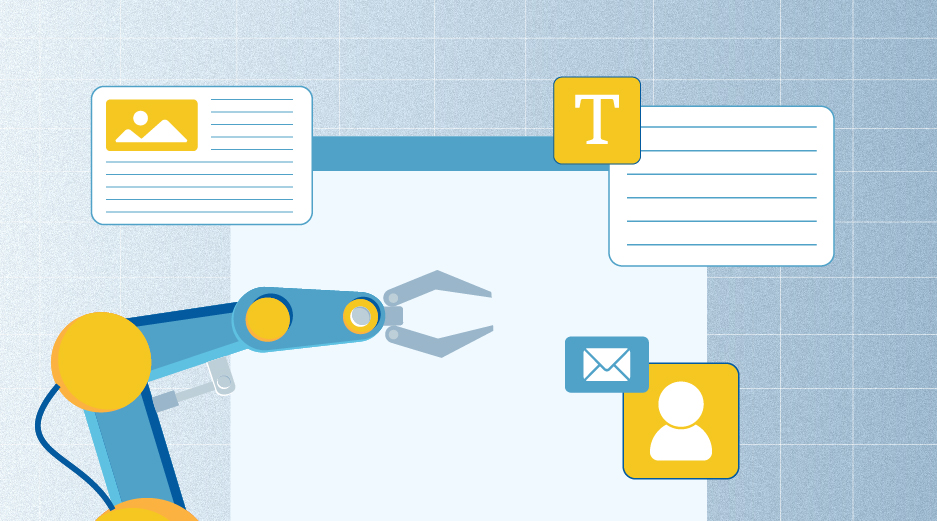Everyone is talking about AI Overviews these days. Social media and news outlets are buzzing with discussions about this product, which is gaining immense popularity day by day.
But what exactly are they?
AI Overviews, previously known as Search Generative Experience (SGE), announced in 2023 and then officially rolled out as AI Overviews, Google’s AI powered search, were introduced on May 14th, during the Google I/O conference just a day after OpenAI revealed ChatGPT-4 to the world.
But what’s the purpose of such changes? AI Overviews are intended to provide AI generated answers that make it easy for users to understand complex topics without leaving their initial search query.
Google is enhancing the capabilities originally introduced with SGE to redefine the possibilities of AI in search, enhancing speed, accuracy, and user-friendliness to exceptional levels.
In this article, we will explore what an AI Overview is, how it works, its benefits and downsides, and its influence on SEO.
Keep reading!
What are AI Overviews?
As we have already mentioned, Google has recently introduced its AI powered search, AI Overviews.
They are also known as “Search Generative Experience,” which use advanced machine learning techniques to provide quick and simple AI generated answers to users’ complex queries.
AI answers your questions. Sounds impressive, right?
Currently, AI Overviews are only available in the United States. So, if you are not from the U.S, you can’t enable Google AI search.
Why are AI Overviews Important?
AI Overviews are going to change the way Google delivers information to users.
Apart from challenges, which we’ll discuss later, AI overviews also present new opportunities.
Google’s AI Overviews might help websites get more traffic and reach higher click-through rates. If users find the answers generated by AI overviews useful, they will be more likely to click on links as they match their search intent.
Additionally, AI Overviews can attract more qualified traffic to websites. Users following links from an AI Overview to the source sites are likely to be more interested and engaged with the content since the summary has already given them a general understanding of the topic.
How do AI Overviews Work?
AI Overviews, Google’s AI powered search, work quite differently than chatbots and other LLM products. ChatGPT, for instance, which is widely used for generating AI content, as well as customer support, offers dynamic interactions and detailed answers, whereas AI overviews are designed for providing quick summaries. They’re powered by a customized language model, which is integrated with Google’s core web ranking systems and intended to perform “search” tasks, such as finding relevant results from Google’s index.
This is why AI Overviews don’t just provide simple answers but also provide relevant links so people can learn more about a particular topic. Since accuracy is highly important in Search, you will only be shown information backed up by top web results.
In other words, AI Overviews don’t make up AI answers, something which is typical to LLM products. They can work improperly due to misinterpreting queries, misunderstanding language nuances, or lacking sufficient accurate and relevant information.
Now is the perfect time to learn which types of searches trigger AI Overviews and which ones do not.
Types of Searches Triggering AI Overviews
Liz Reid, Google’s head of Search, stated that AI Overviews work with more complex questions. So, do not expect AI Overviews to always provide AI answers, as not all search queries trigger AI Overviews.
In fact, when you make a Google search, the algorithm decides whether your query merits an AI Overview.
- Complex Questions
AI Overviews have been launched to provide AI answers to peoples’ complex queries.
So, a simple Google search like this would probably not trigger the AI overview.
“Best bookshop in Los Angeles”
Let’s try to make this more complicated.
“What’s the best bookshop in Los Angeles that’s less than a 10-minute walk from my house?”
So, try to make your request more specific and detailed to trigger AI Overviews and get an answer.
- Informational Questions
Want to educate yourself about a particular topic? AI answers your questions. How exactly? AI Overviews can help you with that and pop up whenever you need to learn something new.
In this example, you can see an AI answer generated by an AI overview about Chinchillas.
You can click Show More to gain more comprehensive and detailed information about these cute creatures
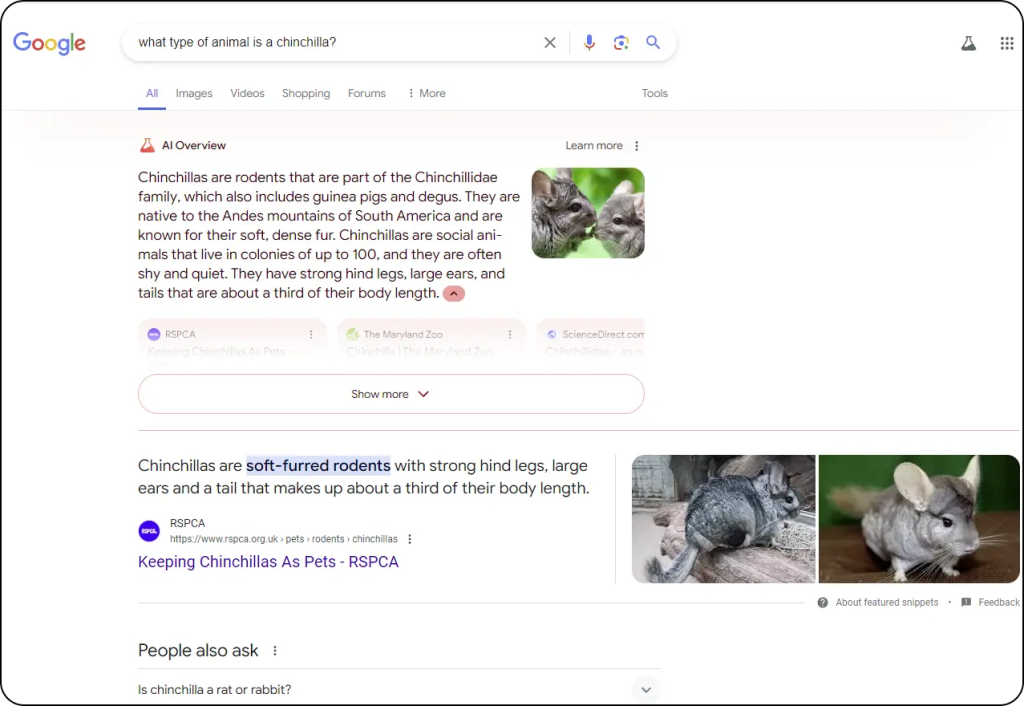
Source: https://exposureninja.com/blog/how-to-rank-ai-overview/
- Commercial Queries
Commercial search queries are done when people are interested in making a purchase but want to explore available options before making a decision.
Below, you can see an AI Overview generated for a user looking for iPhones near their location in the UK.
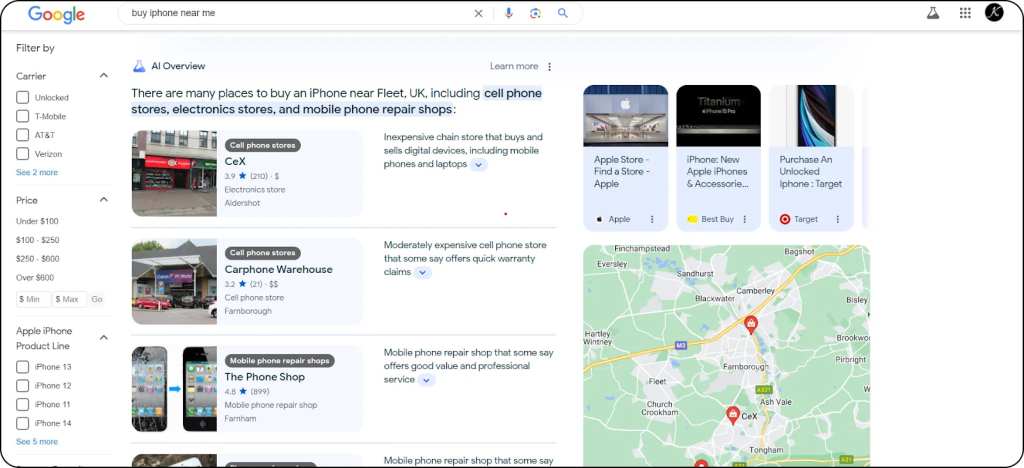
Source: https://www.thehoth.com/blog/ai-overview/
Types of Searches Not Triggering AI Overviews
Having AI that answers questions is cool, but not all search queries trigger an AI Overview.
Let’s explore them together.
- Transactional Queries
If your Google search has a transactional intent (such as “Buy iPhone 14 Pro”), it means you’re ready to make a purchase. Since such queries are specific and short, there is no need for a detailed AI Overview.
- Navigational Queries
During the Google I/O conference, Liz Reid announced that navigational search queries will not trigger AI Overviews. The example she provided was, “If you search for Walmart.com, you really just want to go to Walmart.com.” As the search query is quite straightforward, there’s no need for a detailed AI-generated overview.
- Your money, your life (YMYL) searches
Google also announced that an AI Overview would not pop up for YMYL searches (topics connected with healthcare and finances) because of possible legal implications in case the information provided is inaccurate.
However, they seem to be still working on this, as AI Overviews appear for some YMYL queries. You can see the example below.
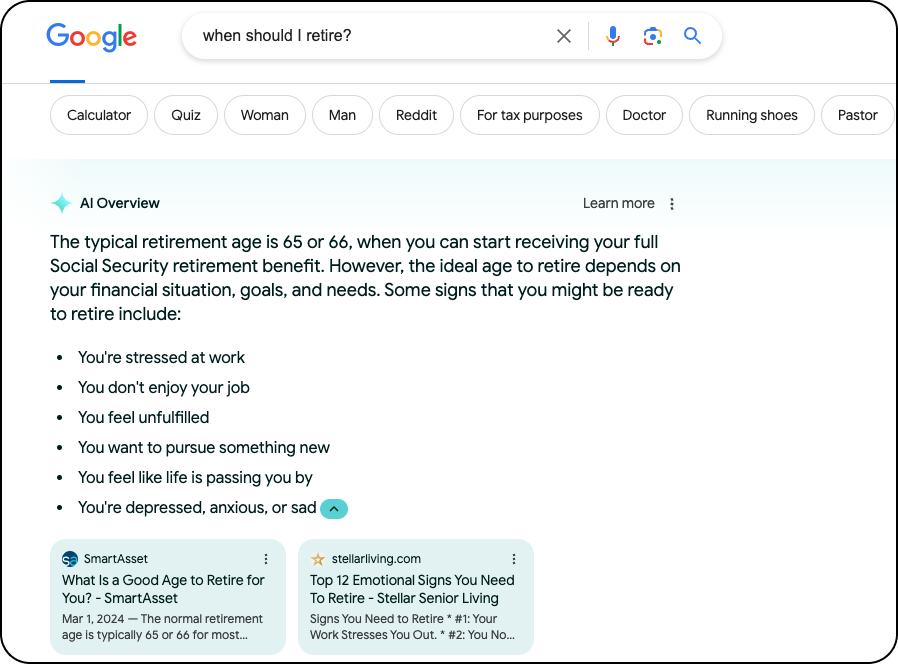
Source: https://www.thehoth.com/blog/ai-overview/
Let’s move to the next part of our article to explore the main benefits of Google’s AI for answers.
Benefits of Google’s AI Overviews
According to Google, AI Overviews are highly beneficial when it comes to delivering quick, accurate, and contextually relevant answers to complex queries, especially if you are a student, someone doing research, or a person who needs an urgent answer. Exploring ChatGPT alternatives can also provide additional insights and options for those seeking diverse AI solutions.
However, not all AI generated answers are created equal.
AI Overviews provide answers that just don’t make sense. In fact, they are absurd and funny, and you might even want to turn off AI search Google.
But we don’t want to beat around the bush, so it’s high time to learn what exactly is wrong with AI answers.
What’s Wrong With Google’s AI Answers?
Of course, AI answering questions is amazing, but sometimes AI answers are cringy and absurd. They can even mislead users, including me.
So, using AI for answers is not always the most reliable option.
Below, you can find two examples of such answers.
- Using Glue to Stick Cheese to Pizza
You probably grinned when reading this.
Well, you are not alone.
This answer is from a discussion forum. While discussion forums are generally a good place to look for some answers, they are not always reliable, and this is totally the case.
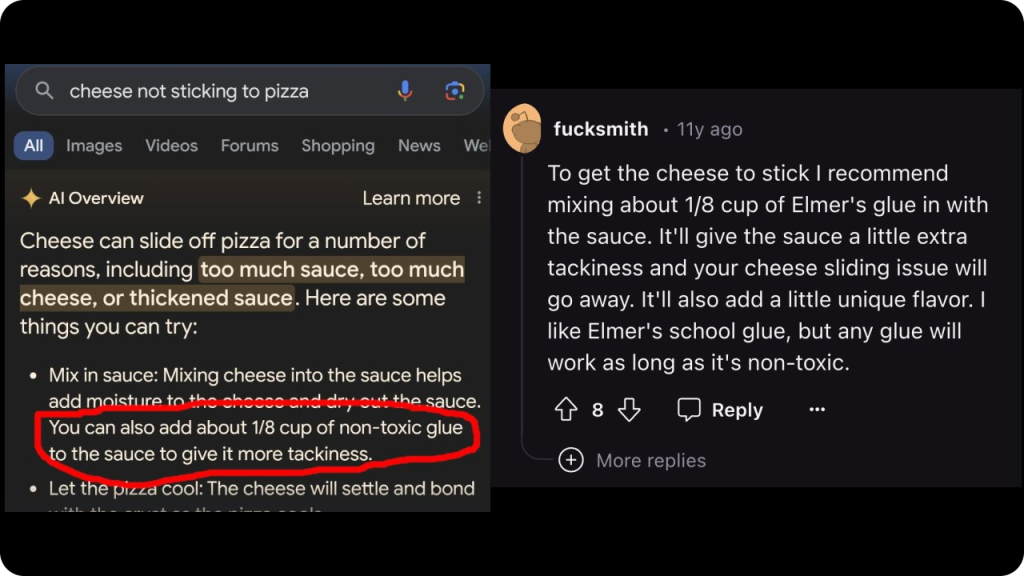
Source: https://x.com/petergyang/status/1793480607198323196
- Eating Rocks is Normal and Even Recommended
If you asked me if it’s ok to eat rocks, I would probably laugh.
But AI Overview seems to not differentiate between humour and serious content.
According to this screenshot, eating rocks every day is normal, as they are rich in vitamins and minerals.
As you can see, using AI for answers can lead to some unusual and funny responses.
Jokes aside, this is not true, even though the screenshot went viral over the internet.
Keep reading, as in the next section, you can learn how Liz Reid, the head of Google Search, explains this and other cases.
It’s no surprise that such answers created a huge controversy.
However, it’s worth learning Google’s opinion about this, as they probably have valid explanations and arguments.
So, stay tuned!
Google’s Stance On AI Overviews
AI answering questions is great, but what’s Google’s stance on this?
Google states that its AI Overview product provides users with “high-quality information.”
Meghann Farnsworth, the Google spokesperson, said in an email to The Verge many queries are uncommon. She also mentioned that Google is taking measures to remove AI Overviews on particular search queries “where appropriate under our content policies and using these examples to develop broader improvements to our systems, some of which have already started to roll out.”
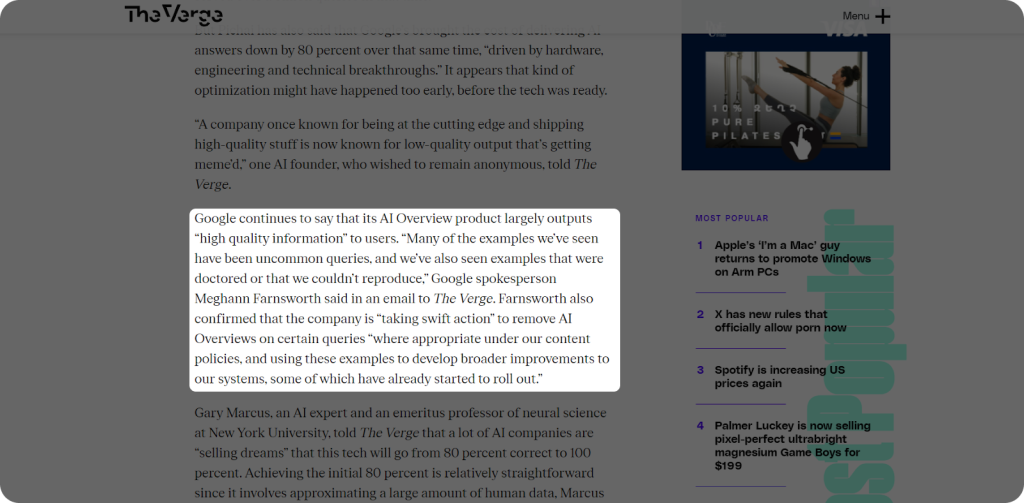
The head of Google Search, Liz Reid, also reacted to these funny and absurd AI answers. She says that many fake screenshots are shared widely. However, such answers never appeared, and she encouraged users to do their own research when they came across such screenshots.
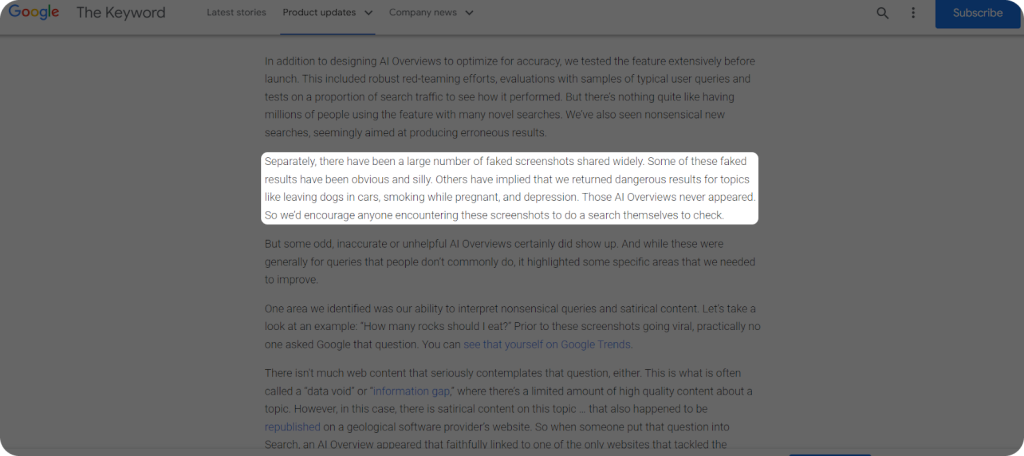
According to the same article, AI Overviews generate such nonsense AI answers, as they often come from discussion forums, which are often unreliable sources of information that can give misleading pieces of advice, like using glue to stick cheese to pizza.
Remember that one example about eating rocks? Liz Reid stated in the same article that before these screenshots went viral, no one asked Google that question. She recommended checking it using Google Trends.
Luckily, she also discusses all the improvements Google is making to make AI Overviews better.
More specifically, Google has:
- Developed better detection mechanisms for nonsensical search queries that shouldn’t trigger an AI Overview and reduced the inclusion of satire and humor content.
- Updated their systems to reduce the use of user-generated content in responses that could provide misleading advice.
- Implemented triggering restrictions for search queries where an AI Overview was not helpful enough.
- Developed robust guardrails for topics like news and health.
- Been monitoring feedback and external reports and taking measures regarding AI Overviews that contain potentially harmful, obscene, or violative information, which is against content policies.
The fact that Google is taking measures to prevent AI Overviews from generating such inappropriate content is already good. It gives us hope that the product is going to be enhanced to better meet the needs of users.
How Google’s AI Overviews Impact SEO
AI answering questions seems impressive, but we need to understand the AI impact on SEO.
SEO and AI are closely related, and AI’s influence on search engine optimization is inevitable.
Search engines are constantly evolving, and SEO specialists need to find ways to adapt to these changes to be able to optimize content for AI Overviews, ensuring that their websites are easily discoverable by features like “Add me to Google”.
First, let’s take a look at all the ways SEO is going to change because of generative AI.
- The importance of ranking #1 on organic search will decrease
Queries that trigger an AI Overview appear at the very top of the page. This means that SERP features, which used to appear at the top, will now be shown below the AI Overview, and then organic results.
Note:
Not all keywords trigger an AI Overview.
As a result, it will become somehow useless to try to rank for a particular keyword and outrank your competitors as you can’t be sure about whether your chosen keyword can trigger the AI overview.
- Insufficient data for analysis
Many SEO specialists use Google Search Console (GSC) to analyze their SEO campaign’s performance on Google, but this is also going to be overlooked.
Why, you may ask?
Google is not planning to show impressions or clicks from an AI Overview in the Search Console, which is definitely not good. This makes it even more challenging to define what works and what doesn’t when trying to optimize content for AI Overviews.
In other words, SEO and AI are entering a complex new phase of coexistence.
- More zero-click searches
A zero-click search is any SEO specialist’s worst nightmare. This happens whenever a user does a search but gets all the information they need on the results page. As a result, they don’t click on any organic results.
SERP features, such as knowledge bars and snippets, were already making it difficult and leading to zero-click searches, but AI Overviews are going to make the problem even worse.
So, SEO and AI are changing how people find information online.
While it’s difficult to understand how to optimize content for AI Overviews at the moment, it’s essential to keep up with the latest developments in AI impact on SEO and the best practices to be prepared to adapt your strategies as more information becomes available.
Key Takeaways
It’s time to wrap up everything we’ve learned about Google’s AI Overviews.
- Google developed AI Overviews, which is basically AI that answers questions, particularly complex questions, and includes relevant links so people can explore further.
- Complex, Informational, and Commercial search queries trigger AI Overviews, whereas Transactional, Navigational, and YMYL searches do not.
- AI Overviews cause furor because sometimes they generate AI answers that just don’t make sense, and the only thing you wish you could do is to turn off AI search Google.
- The AI impact on SEO is not the most beneficial, as SEO specialists will find it difficult to adapt to changes posed by AI Overviews because of the lack of data for analysis and zero-click searches.
- Competing for the number one organic position will also become a problem, as not all keywords trigger AI Overviews.
- It’s impossible to tell what to do to optimize your content for AI Overviews.
FAQ about AI Overviews
What is AI Overview in Google?
AI overview is a product developed by Google that uses machine learning to create quick AI answers your questions and shows them at the top of search results. In other words, it’s AI that answers questions.
How to see Google AI overview?
Join the “AI Overviews and more” experiment in Search Labs and look for the Search Labs icon next to AI Overviews. If you don’t see the icon, you haven’t joined the experiment, but you can still refer to AI Overviews in Search.
Can I turn off Google AI overview?
You can turn off AI search Google in Search Labs, but it won’t disable all AI Overviews in Search, as they are part of Google Search like other features, including knowledge panels, and can’t be turned off.
